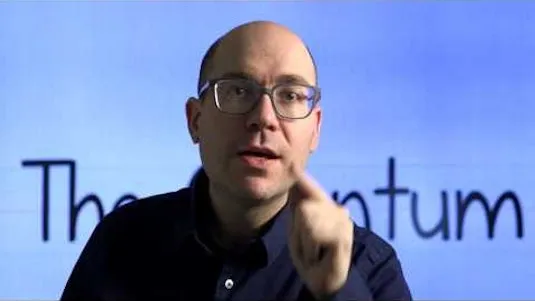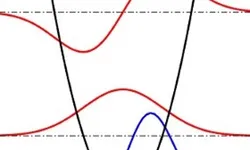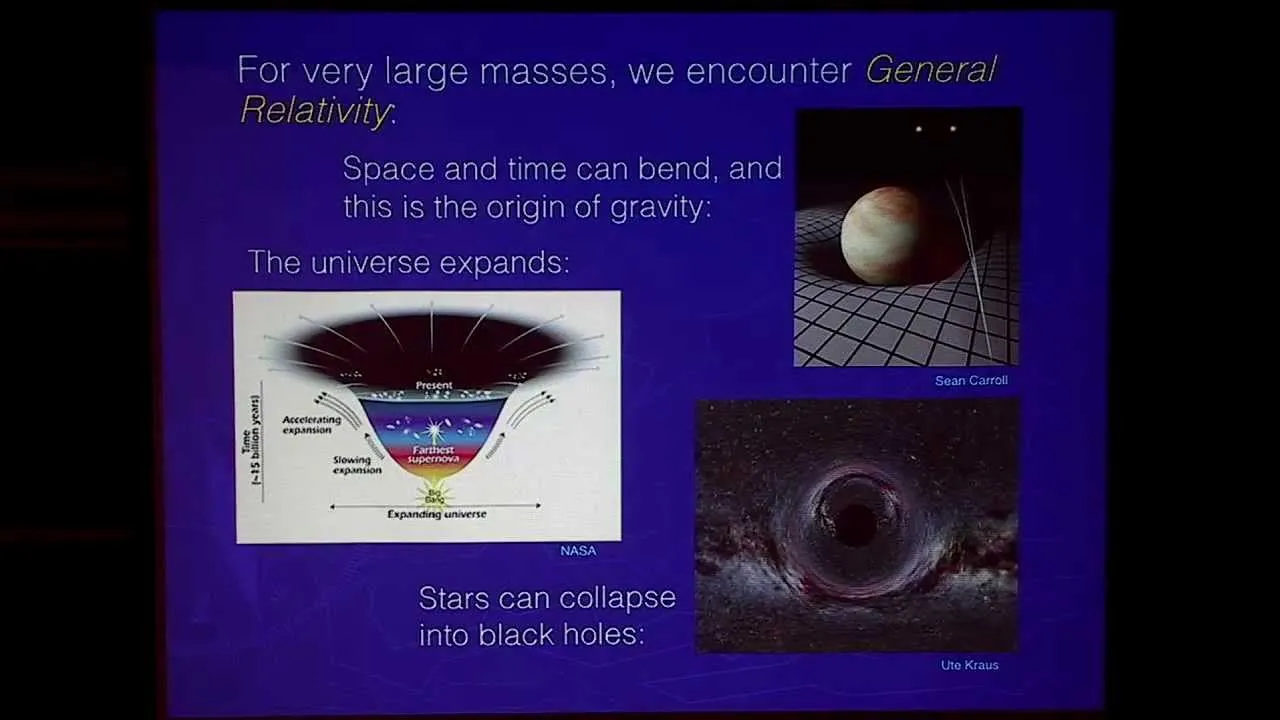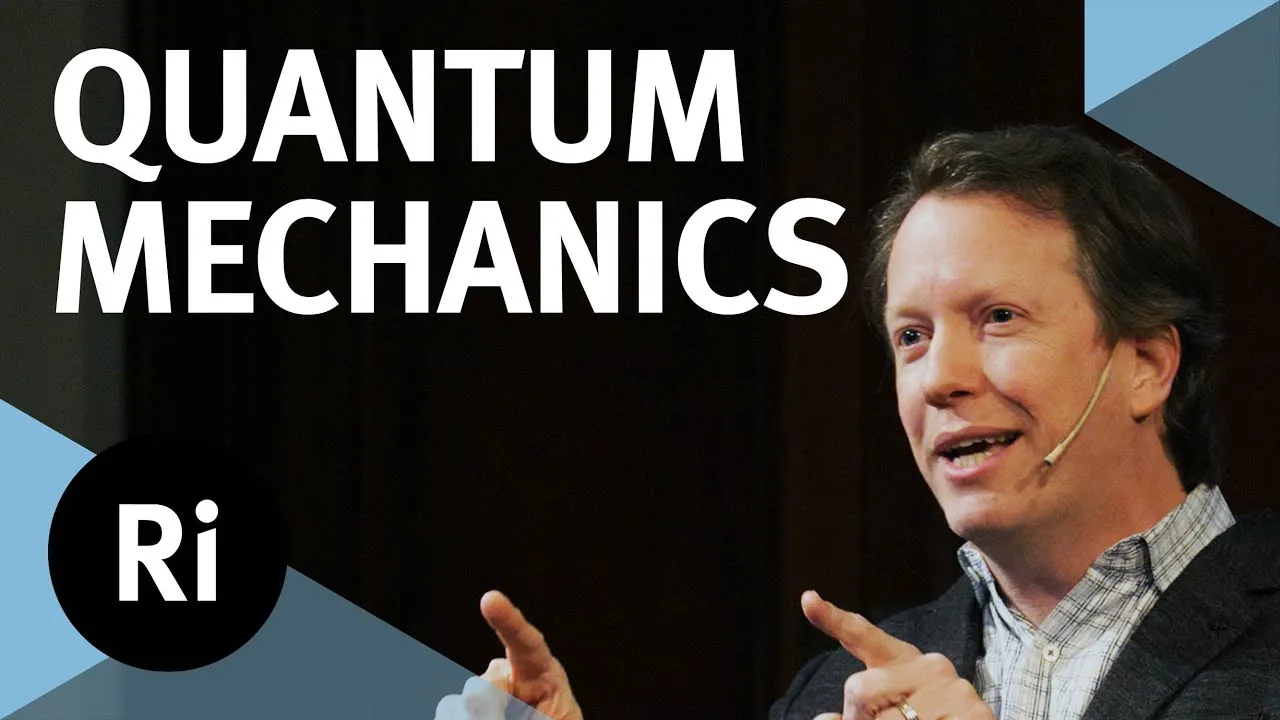
The Quantum World 
This course provides an overview of quantum chemistry, exploring the application of quantum theory to atoms, molecules, and materials. Students will gain an understanding of wavefunctions, probability, special notations, and approximations, as well as the fundamentals of quantum mechanics. With this knowledge, they will be able to explore the fascinating world of the quantum. ▼
ADVERTISEMENT
Course Feature
![]() Cost:
Cost:
Free
![]() Provider:
Provider:
Edx
![]() Certificate:
Certificate:
No Information
![]() Language:
Language:
English
![]() Start Date:
Start Date:
1st Jun, 2017
Course Overview
❗The content presented here is sourced directly from Edx platform. For comprehensive course details, including enrollment information, simply click on the 'Go to class' link on our website.
Updated in [March 06th, 2023]
The Quantum World is an introductory course to quantum chemistry. It covers topics such as wavefunctions, probability, special notations, and approximations that make quantum mechanics easier to apply. Students will also learn how to use Python to program quantum-mechanical models of atoms and molecules. This course is designed for chemistry majors who want extra material alongside an on-campus course, chemistry majors at an institution that does not offer quantum chemistry, physics or CompSci majors who want to branch out to chemistry, graduate students refreshing on quantum mechanics before their qualifying exams, and professional chemists who want to brush up on their skills. Prerequisites for this course include college-level chemistry and calculus, as well as some prior programming experience.
[Applications]
Upon completion of this course, students can apply their knowledge of quantum mechanics to a variety of fields, such as materials science, nanotechnology, and biochemistry. They can also use their programming skills to develop and implement quantum-mechanical models of atoms and molecules. Additionally, students can use their understanding of quantum mechanics to gain a deeper understanding of chemistry and physics.
[Career Paths]
Career paths recommended to learners of this course include:
1. Quantum Chemist: Quantum Chemists use quantum mechanics to study the behavior of atoms and molecules. They develop models and simulations to understand the properties of matter and predict the outcomes of chemical reactions. This field is rapidly growing, and Quantum Chemists are in high demand in the pharmaceutical, materials, and energy industries.
2. Quantum Computing Engineer: Quantum Computing Engineers design and build quantum computers. They develop algorithms and software to run on these machines, and they work with hardware engineers to build the actual machines. This field is still in its infancy, but it is expected to grow rapidly in the coming years.
3. Quantum Physicist: Quantum Physicists study the behavior of matter and energy at the atomic and subatomic level. They use quantum mechanics to understand the behavior of particles and develop theories to explain the behavior of the universe. This field is growing rapidly, and Quantum Physicists are in high demand in the research and academic fields.
4. Quantum Materials Scientist: Quantum Materials Scientists use quantum mechanics to study the properties of materials. They develop models and simulations to understand the behavior of materials and predict the outcomes of experiments. This field is rapidly growing, and Quantum Materials Scientists are in high demand in the materials, energy, and pharmaceutical industries.
[Education Paths]
Recommended degree paths for learners of The Quantum World include:
1. Bachelor of Science in Chemistry: This degree provides a comprehensive overview of the fundamentals of chemistry, including quantum mechanics. Students will learn about the structure of atoms and molecules, chemical reactions, and the properties of matter. This degree is ideal for those who want to pursue a career in chemistry or related fields.
2. Master of Science in Computational Chemistry: This degree focuses on the application of computer science and mathematics to the study of chemistry. Students will learn how to use computer simulations to model chemical systems and predict their behavior. This degree is ideal for those who want to pursue a career in research or industry.
3. Doctor of Philosophy in Quantum Chemistry: This degree focuses on the application of quantum mechanics to the study of chemistry. Students will learn about the structure of atoms and molecules, chemical reactions, and the properties of matter. This degree is ideal for those who want to pursue a career in research or academia.
4. Master of Science in Applied Physics: This degree focuses on the application of physics to the study of chemistry. Students will learn about the structure of atoms and molecules, chemical reactions, and the properties of matter. This degree is ideal for those who want to pursue a career in research or industry.
The development trends for these degree paths include the use of artificial intelligence and machine learning to improve the accuracy of quantum-mechanical models, as well as the use of quantum computing to solve complex problems. Additionally, the development of new materials and technologies that rely on quantum mechanics is driving the need for more advanced degrees in this field.
Course Provider

Provider Edx's Stats at AZClass
Discussion and Reviews
0.0 (Based on 0 reviews)
Explore Similar Online Courses

Time Management Tips

How To Build A WordPress Website for Beginners

Python for Informatics: Exploring Information

Social Network Analysis

Introduction to Systematic Review and Meta-Analysis

The Analytics Edge

DCO042 - Python For Informatics

Causal Diagrams: Draw Your Assumptions Before Your Conclusions

Whole genome sequencing of bacterial genomes - tools and applications

Foundations of Quantum Mechanics

Gravity and Quantum Mechanics - The Quest for Unification

A Brief History of Quantum Mechanics - with Sean Carroll
 Related Categories
Related Categories
Quiz
 Submitted Sucessfully
Submitted Sucessfully
1. What type of prior knowledge is required for this course?
2. What type of programming experience is encouraged for this course?
3. Who is this course ideal for?


Start your review of The Quantum World